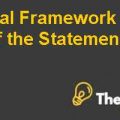
B Lab, a U.S. NGO, was founded with a goal to facilitate investment capital to divert toward private organizations that are highly committed, in addition to its equity investors, to its stockholders, including employees and public and that have a goal to promote the benefit of society. In order to measure and evaluate the social and environmental Return on Investment in an effective way, this non-profit organization, B Lab, introduced robust tools to assess the activities of these private enterprises. A 200-point assessment scheme “B Impact Assessment” was the base of those tools. Along with this, B Lab took an initiative to offer a certification “B Corp” to those organizations that are accountable to each of its stakeholder interest in its mission. The Benefit organization, was the also developed by B Lab to facilitate those highly committed enterprises. These initiatives by B Lab led the investors to put the investment in a way that not only generate the monetary value but also promote the social value.
After the eight years of its foundation, in 2014, B Lab found a strategic dilemma when the investment markets showed lack of interest due to the B Lab’ measurement systems that according to them was a burdensome. Many organizations desired to have customized tools to suit data collection for their own current metrics or wanted only to incorporate few steps of B Lab’s tools. To do so, B Lab would not be able to implement on its mission that demand to have a common standard for all enterprises. The management of B Lab was examining the potential impact of this change, and the level of customization the investors demand and the company could offer.













